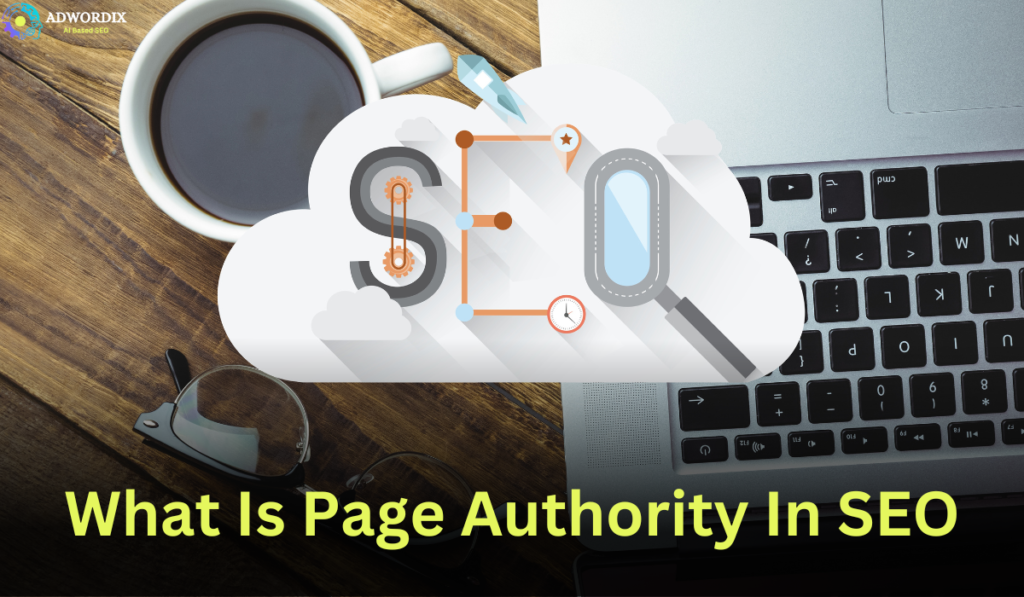Page Authority (PA) is an essential metric in Search Engine Optimization (SEO) that evaluates the likelihood of a webpage ranking well on search engine results pages (SERPs). Developed by Moz, Page Authority scores range from 1 to 100, with higher scores indicating a greater likelihood of ranking. This metric is influenced by factors like the quality and quantity of backlinks, content relevance, and user experience.
Understanding Page Authority and the difference between white hat SEO and black hat SEO is essential for improving your website’s performance. White hat SEO involves ethical, guideline-compliant strategies that focus on long-term success, while black hat SEO relies on manipulative tactics for short-term gains, often leading to penalties. Improving Page Authority requires a strong focus on creating high-quality, engaging content that attracts visitors and earns backlinks from reputable websites.
In this guide, we’ll explore Page Authority, its importance, and actionable steps to boost your rankings effectively.
Understanding Page Authority
Page Authority (PA) is a score that predicts how likely a specific webpage is to rank in search engine results. It’s a helpful metric for understanding which pages of your website are performing well and which need improvement.
Key Features:
- Scored between 1 and 100.
- A higher score means better chances of ranking.
- It uses factors like backlinks, content quality, and user experience.
How is Page Authority Different from Domain Authority?
While Page Authority looks at the ranking potential of a single webpage, Domain Authority evaluates the strength of an entire website.
Feature | Page Authority | Domain Authority |
Focus | Individual pages | Entire website |
Factors Considered | Backlinks to the page | Overall backlink profile |
Purpose | Improve specific pages | Assess site-wide performance |
Key Takeaway: Work on both metrics, but focus on improving Page Authority for pages that are critical to your business.
White Hat vs. Black Hat SEO
The Difference Between White Hat and Black Hat SEO
When it comes to SEO, there are two main approaches: White hat SEO adheres to search engine guidelines, whereas black hat SEO employs manipulative tactics to exploit search algorithms.
Aspect | White Hat SEO | Black Hat SEO |
Compliance | Follows search engine rules | Violates search engine rules |
Techniques | Content quality, natural backlinks | Keyword stuffing, spammy links |
Focus | Long-term growth | Short-term, risky gains |
Risk Level | Low | High (penalties and ranking loss) |
Why Choose White Hat SEO?
White hat SEO is a safe and effective way to achieve lasting results. It focuses on creating high-quality content and building trust with your audience and search engines.
Factors That Influence Page Authority
Key Components of Page Authority
To improve your Page Authority, it’s important to understand the factors that affect it. These include:
Backlink Quality and Quantity
- Backlinks from trustworthy websites increase your PA.
- Focus on earning links from relevant and authoritative sources.
Content Quality
- High-quality content attracts visitors and keeps them engaged.
- Make your content unique, helpful, and easy to read.
User Experience
- Factors like page speed, mobile-friendliness, and easy navigation improve rankings.
- A positive experience keeps users on your page longer.
The Role of Internal Linking
Internal linking connects your web pages and helps distribute link equity. It also improves navigation for users and helps search engines understand your site’s structure.
Best Practices:
- Link to related content within your site.
- Use descriptive anchor text for clarity.
- Avoid overloading pages with too many links.
Strategies to Improve Page Authority
Create High-Quality Content
Content forms the cornerstone of a successful SEO strategy. Engaging and valuable content can attract backlinks and keep visitors coming back.
Tips for High-Quality Content:
- Write with your audience in mind, not just for search engines.
- Use keywords naturally within the content.
- Divide your text using headings, bullet points, and visuals for better readability.
Build a Strong Backlink Profile
Backlinks are one of the most important factors for Page Authority. Quality matters more than quantity.
How to Earn Backlinks:
- Reach out to other websites for guest posts.
- Create shareable content like infographics or case studies.
- Ask for links to your content when it adds value to other sites.
Leverage Internal Linking
Internal links aid in site navigation for users while also distributing link equity effectively.
Best Practices:
- Link from high-ranking pages to those that need a boost.
- Use clear, descriptive anchor text.
- Conduct regular audits of your internal links to identify and fix any broken ones.
Focus on Mobile Optimization and Page Speed
Most users browse on mobile devices, so having a mobile-friendly site is critical. Slow-loading pages can drive users away and harm your rankings.
Steps to Optimize Mobile and Speed:
- Implement a responsive design to ensure your website adapts seamlessly to all devices.
- Compress images to reduce load times.
- Use tools like Google to test and analyze your website’s performance.
The Role of SEO Services
How SEO Services Can Help Improve Page Authority
Professional SEO services can help you implement advanced strategies for improving your Page Authority. They focus on all aspects of SEO, including On-Page SEO, Off-Page SEO, and Technical SEO.
Benefits of SEO Services:
- Identify and fix technical issues like slow page speeds or broken links.
- Conduct in-depth keyword research and optimize your content.
- Build a strong backlink profile to improve authority.
Choosing the Right SEO Services
When selecting an SEO provider, look for:
- Transparent reporting and clear communication.
- Proven results and client testimonials.
- Emphasizing long-term strategies over short-term quick fixes.
Tools to Measure and Track Page Authority
Recommended Tools
To monitor your Page Authority and track progress, use reliable tools like:
- Moz: The original tool for measuring Page Authority and Domain Authority.
- Ahrefs: Provides detailed backlink analysis and competitor insights.
- Semrush: Tracks rankings, backlinks, and overall SEO performance.
Regular Tracking and Updates
Set up regular performance checks to track your Page Authority. Use the insights to adjust your strategies and keep improving.
Conclusion
Page Authority is a key factor in SEO that helps determine how well your pages rank. You can gradually enhance your PA score by implementing white hat SEO techniques, producing high-quality content, building backlinks, and improving your site’s user experience.
Remember, SEO is a long-term effort. Consistent work on your website’s content, structure, and strategy will lead to better rankings and more traffic over time. Get started today and witness how small changes can lead to significant results!
Frequently Asked Questions
Page Authority (PA) is a score developed by Moz that predicts how well a specific webpage will rank in search engine results pages (SERPs). The score spans from 1 to 100, with higher values reflecting a greater likelihood of ranking.
While Page Authority measures the ranking potential of an individual webpage, Domain Authority assesses the overall strength and ranking potential of an entire website. Both metrics are useful for improving SEO strategies.
Key factors include the quality and number of backlinks, the relevance and uniqueness of content, and the overall user experience, such as page speed and mobile-friendliness.
You can improve Page Authority by creating high-quality, engaging content, earning backlinks from authoritative websites, optimizing user experience, and regularly updating your pages with fresh information.
White hat SEO involves ethical, long-term strategies like creating quality content and earning natural backlinks. In contrast, black hat SEO relies on manipulative tactics like keyword stuffing and buying links, which can lead to penalties from search engines.





